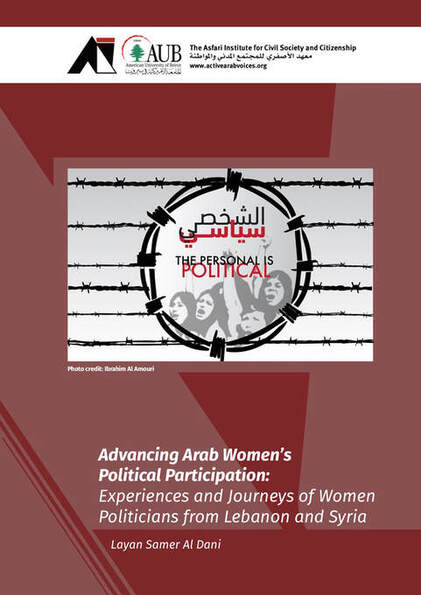- Home
- Regional Storytelling
- Student Projects
- Women of Afghanistan
- Co-ed Thesis Page
- Women's Day
- Podcasts
- Lectures
- Op-Eds
- 16 Days of Activism
- Beirut's Anger and Solidarity
- Citizens' Initiatives
- Lebanon Protests
- Hassan Abbas Memorial
- Research Papers
- Events
- Hotspots
- Spotlight
- Art Competition
- WE ARE READING
The views and opinions expressed on the website are those of the authors and do not necessarily represent the views of ASI-REM.
The Representations and Perceptions of Lebanese Women in Lebanese Media: Exploring Gender Roles through the Show Take Me Out
Dana Houssam Houalla
The following thesis will be dissecting and analyzing the Arabic version of the dating show Take Me Out, with particular attention to what was deemed as its controversial content. The show, which aired on the Lebanese Broadcasting Corporation International (LBCI) channel, also known as LBC, back in 2016, caused a commotion among its audiences for displaying scenes that are overtly sexual as well as relatively new to Lebanese television, especially when it came to gender roles and dynamics. As such, the first question that will be tackled by this thesis is: How do gender and sexual representations on the show and discourses about them evoke different values, norms, and traditions in the popular imagination? In an attempt to answer this question, I will be analyzing the content of the show and comparing and contrasting it with the norms and values in the Lebanese/Arab popular imagination. Consequently, I studied both the discourse within and around the show.
Click here for more
Click here for more
Advancing Arab Women’s Participation in Politics:
Experiences and Journeys of Women Politicians from Lebanon and Syria
Layan Samer Al Dani
Women in the MENA region are still fighting for their political agency in a patriarchal society which obscures their own right to participate and be politically influential. Women’s participation in the public sector and political power positions have not been achieved the desired level, although many measures have been adopted by a majority of MENA countries to enhance the representation of women in decision-making positions. To answer the above questions, we need to understand women›s historical pathways to reach such posts from a feminist lens. This lens would lead us to having women as central to data collection and exploring the analysis and identifying key opportunities and factors that would help other women participate in politics.
Click here for more
Click here for more
ADDRESS
Address
PO Box 63 Brummana 1204-2010, Maten, Lebanon Tel: +961-70-300308 |
CONTACT
|


